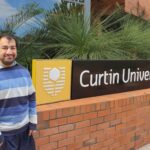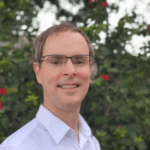If we looked at tertiary education in Australia with an Indigenous gaze instead of a colonial one, how could it be different, and better?
This question underpins the work of Curtin’s first Dean of Indigenous Futures, held by Yindjibarndi woman Mandy Downing.
Dean Downing says she was honoured to take up the role, which is based in Curtin’s Faculty of Humanities, adding she was passionate about ethical research and supporting Indigenous Australians’ aspirations in tertiary education.
“I’m grateful to be part of a faculty that values Indigenous knowledge in education and research. There is outstanding capability in this area,” Dean Downing says.
Dean Downing’s task is to understand where the strengths and weaknesses lie within the Indigenous futures space. For example, Curtin staff must complete cultural awareness training, but Dean Downing says it’s important to consider the impact of this requirement on Aboriginal and Torres Strait Islander staff.
“There is a potential for us to relive trauma. It can be perceived as a micro-aggression, which assumes that none of our Indigenous Australian staff have cultural capabilities. We need to choose wisely about where we invest our energy by way of self care.”
As well as acting in the senior management role, Dean Downing will continue her research work at Curtin, where she specialises in ethical considerations for Indigenous Australian research and institutional racism.
Additionally, she is the Senior Indigenous Facilitator for the National Environmental Science Program Sustainable Communities and Waste Research Hub, and the Co-Chair of the Australian Institute of Aboriginal and Torres Strait Islander Studies (AIATSIS) National Research Ethics Committee.
“We need to reconsider the research landscape so it becomes normalised for Aboriginal people to be the researchers rather than the researched,” Dean Downing says.
“Current systems and policies are designed from a cultural deficit discourse, which assume we’d never be the experts.”
Dean Downing says universities are well positioned to reframe the way we learn and share Indigenous culture, history and identity.
“Universities play an important role in shaping peoples’ views through education. So it’s vital to listen when Aboriginal people share their lived experience.
“It’s a privilege to learn from Aboriginal people in the community. As a university, we have a lot of opportunity to develop our cultural capabilities on campus and in the community. We have a responsibility to lead by example and show what can be achieved when we walk together.”



